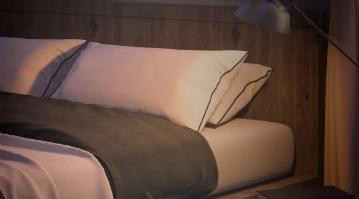Falling asleep
How to fall asleep
Can’t get to sleep? In this section, we’ll give you some tips and tools for falling asleep, staying asleep and waking up refreshed. Find out what lifestyle habits might affect your sleep patterns and cause sleeplessness. Learn what we mean when we talk about sleep hygiene. Learn how letting us take a peek inside your bedroom might help. Discover what impact the foods you eat have on how you sleep (or don’t sleep!). Use what you’ve learned by downloading a sleep diary that will help you take back control of your nights.
In the bedroom
Your bedroom is a sleep sanctuary…it is where you retreat when the need for sleep hits you. So your bedroom environment is important. Let’s take a peek at yours:

